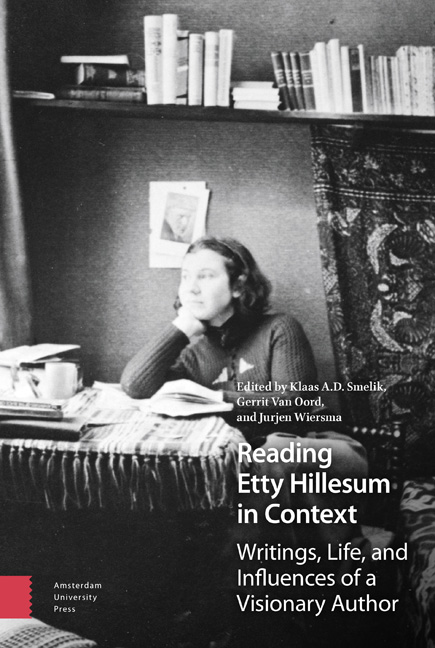8 - “Aesthetic Mirrors”: Etty Hillesum and Rainer Maria Rilke
Published online by Cambridge University Press: 06 January 2021
Summary
Abstract
Etty Hillesum's personal engagement in her writings with the literary works of the Prague-born German poet Rainer Maria Rilke (1875-1926) is thought-provoking. Rilke's influence on Hillesum's writings brought out not only her poetic quality, but her real and lived humanity. In this article, the author offers the reader a glimpse into one of the most powerful and overlooked influences on Etty Hillesum's development as a writer. While doing justice to the profundity of her insight, the author discloses some of the literary subtleties shared by Hillesum and Rilke. With literary hermeneutics, the author gazes into three esthetische spiegels [aesthetic mirrors] and draws detailed, creative lines from Hillesum's work to Rilke’s. Furthermore, the article claims that the works of Rilke and Hillesum are still relevant. The bloody tragedies of war, terror and genocide inflict deep wounds up to the present day. Rarely did two people write so much in such short life spans. How war, but also love, left their mark on the life and writings of these two authors remains a mystery they call… Weltinnenraum.
Keywords: Rainer Maria Rilke, Weltinnenraum, literary hermeneutics, literary influence, aesthetic mirror, Etty Hillesum
Wie soll ich meine Seele halten, daß sie nicht an deine rührt? Wie soll ich sie hinheben über dich zu andern Dingen? […] Auf welches Instrument sind wir gespannt? Und welcher Geiger hat uns in der Hand? O süßes Lied.
Rainer Maria Rilke, Liebes-Lied“Wie soll ich meine Seele halten” … “How shall I hold my soul suspended above you so that it does not touch on yours?” … “Wie soll ich sie hinheben über dich zu andern Dingen” … “How shall I succeed in concentrating on other things?” These are the aesthetic words of the Prague-born German poet Rainer Maria Rilke (1875-1926). Like the diaries and letters of Etty Hillesum (1914-1943), his texts evoke questions. His poetry reflects [spiegelt] the internal dynamics of the way of all beings. Yet, one wonders: What is this “inner way”? A path for writers only? A literary game played by artists and poets who strive for greater independence and high ideals, for love in general, and for literature in particular? Or can we speak of a universal Quest, a “love song” (Liebes-Lied) for all?
- Type
- Chapter
- Information
- Reading Etty Hillesum in ContextWritings, Life, and Influences of a Visionary Author, pp. 183 - 226Publisher: Amsterdam University PressPrint publication year: 2018



